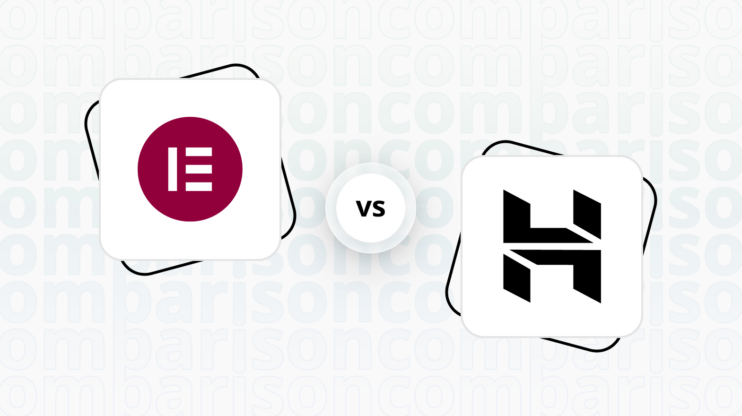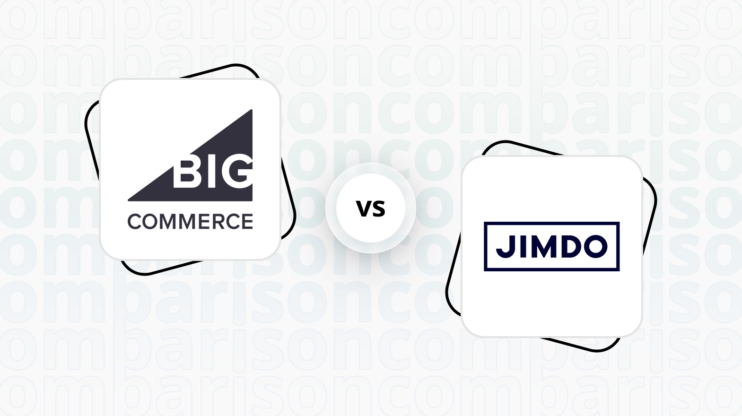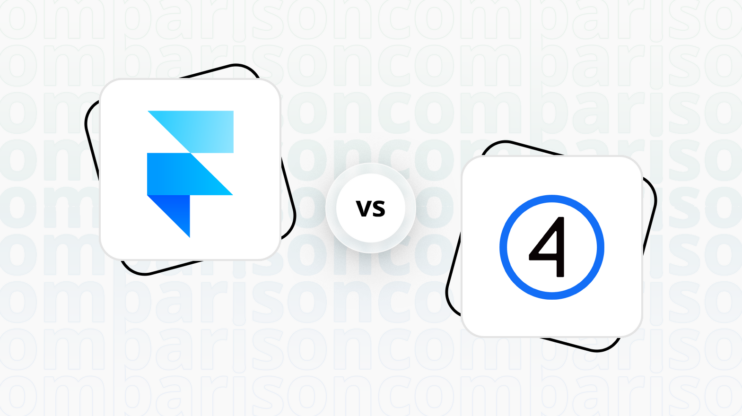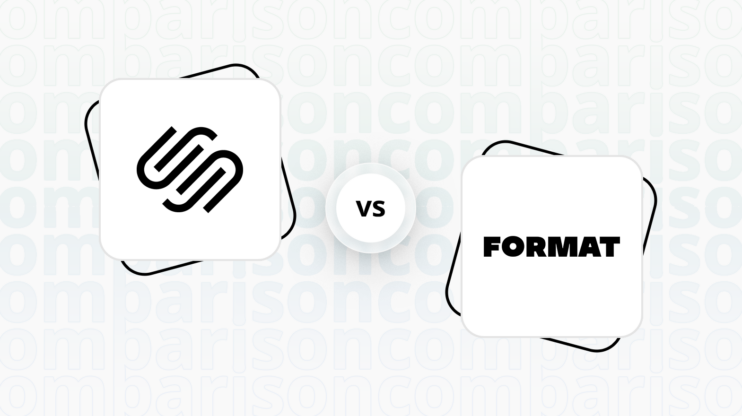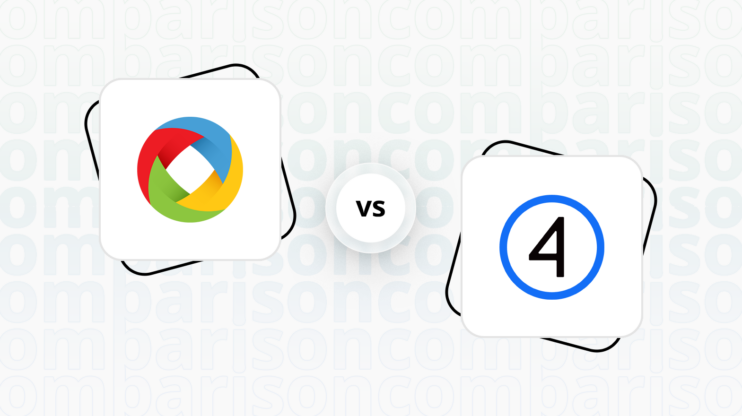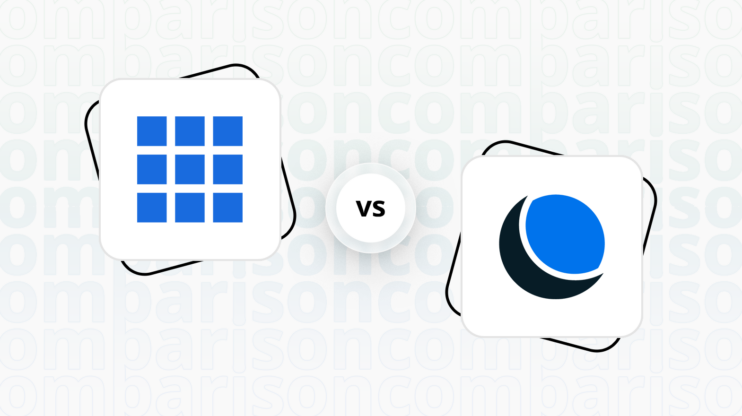Final verdict
Drupal and Sellfy both offer unique advantages, catering to different user needs and preferences.
-
Drupal (Overall Grade: 6.4/10)
is a powerful open-source CMS known for its flexibility and extensibility. It is ideal for developers and businesses looking to create complex websites with custom functionalities. Drupal excels in design functionalities, security, and user management, making it suitable for a variety of websites, from personal blogs to corporate and government sites. However, its steep learning curve and need for technical expertise can be challenging for beginners. -
Sellfy (Overall Grade: 6.0/10)
is an all-in-one eCommerce platform tailored for creators and small businesses. It offers a user-friendly interface, making it easy to set up and manage an online store without advanced technical skills. Sellfy stands out in ease of use, hosting quality, and straightforward pricing, making it a great choice for those looking to sell digital, physical, subscription-based, and print-on-demand products. However, it lacks the advanced customization and extensive plugin options that Drupal offers.

|

|
|
|---|---|---|
|
Design functionalities & templates |
7.8 |
5.2 |
|
Ease of use |
5.4 |
7.8 |
|
Ecommerce |
7.5 |
6.8 |
|
Website Editors |
7.5 |
6.8 |
|
Product testing options |
7.1 |
7.3 |
|
Price |
5.7 |
7.9 |
|
Hosting quality |
0 |
7.3 |
|
Website speed optimization |
6.4 |
5.4 |
|
Plugins and integrations |
8.6 |
6.7 |
|
Marketing features |
8.0 |
7.1 |
|
Customer support |
6.7 |
5.8 |
|
Security |
8.3 |
7.2 |
|
AI capabilities |
7.5 |
0 |
|
User Management |
9.1 |
2.0 |
| Overall |
6.4 |
6.0 |
Best for ecommerce
 7.5
7.5
 6.8
6.8
Verdict
: Drupal offers extensive customization and flexibility, making it suitable for complex ecommerce needs, while Sellfy is ideal for creators looking for a straightforward, user-friendly platform.
-
Drupal
: Known for its flexibility and extensibility, Drupal is ideal for developers who need to create complex ecommerce websites with custom functionalities. It offers a wide range of ecommerce features, including product management, payment gateway integration, and customizable workflows. However, it has a steep learning curve and may require extensive customization. When comparing Drupal vs Sellfy, Drupal stands out for its ability to handle complex ecommerce requirements. -
Sellfy
: Sellfy is a user-friendly ecommerce platform designed for creators selling digital, physical, and subscription-based products. It features built-in marketing tools and supports payment processing via Stripe and PayPal without additional transaction fees. While it may lack the advanced customization options of Drupal, Sellfy’s simplicity and ease of use make it an attractive option for creators looking to quickly set up an online store.
Best for informational & business websites
 7.5
7.5
 5.7
5.7
Verdict
: Drupal is the superior choice for informational and business websites due to its flexibility, extensive customization options, and robust support for complex web development needs. Sellfy, while user-friendly and efficient for ecommerce, falls short in providing the same level of depth and customization for purely informational sites.
-
Drupal
: Drupal excels in creating complex, highly customizable websites. Its open-source nature and extensive range of modules and themes make it ideal for developers looking to build sophisticated informational sites. With a score of 7.5, Drupal offers a wealth of design functionalities and a powerful content management system, making it a versatile choice for various types of websites, including corporate, political, and government sites. -
Sellfy
: Sellfy, scoring 5.7, is primarily an ecommerce platform tailored for creators. While it offers a simple and user-friendly interface, it lacks the advanced customization and flexibility that Drupal provides. Sellfy is better suited for users looking to quickly set up an online store rather than building a complex informational website. Its focus on ecommerce functionalities makes it less ideal for purely informational business websites.
Detailed comparison
Design functionalities & templates
Design FunctionalitiesRepresents how well each platform allows for creative design and customization of websites.Score Components:
- Template Variety (30%): Range and quality of design templates.
- Customization (30%): Flexibility and options for design alterations.
- User Interface (20%): Ease and intuitiveness of the design process.
- Responsiveness (10%): Adaptability to different devices and screen sizes.
- Innovation (10%): Unique design features and tools.
 7.8
7.8
 5.2
5.2
🏆
Winner: Drupal.
If you’re looking for a platform that offers more creative control and a wide array of design features, Drupal is the preferred choice.
Drupal, as a highly flexible and powerful content management system, offers a vast array of templates and designs to cater to virtually any website need. With thousands of themes available, users can choose from minimalist designs, industry-specific layouts, and highly customizable multipurpose themes.
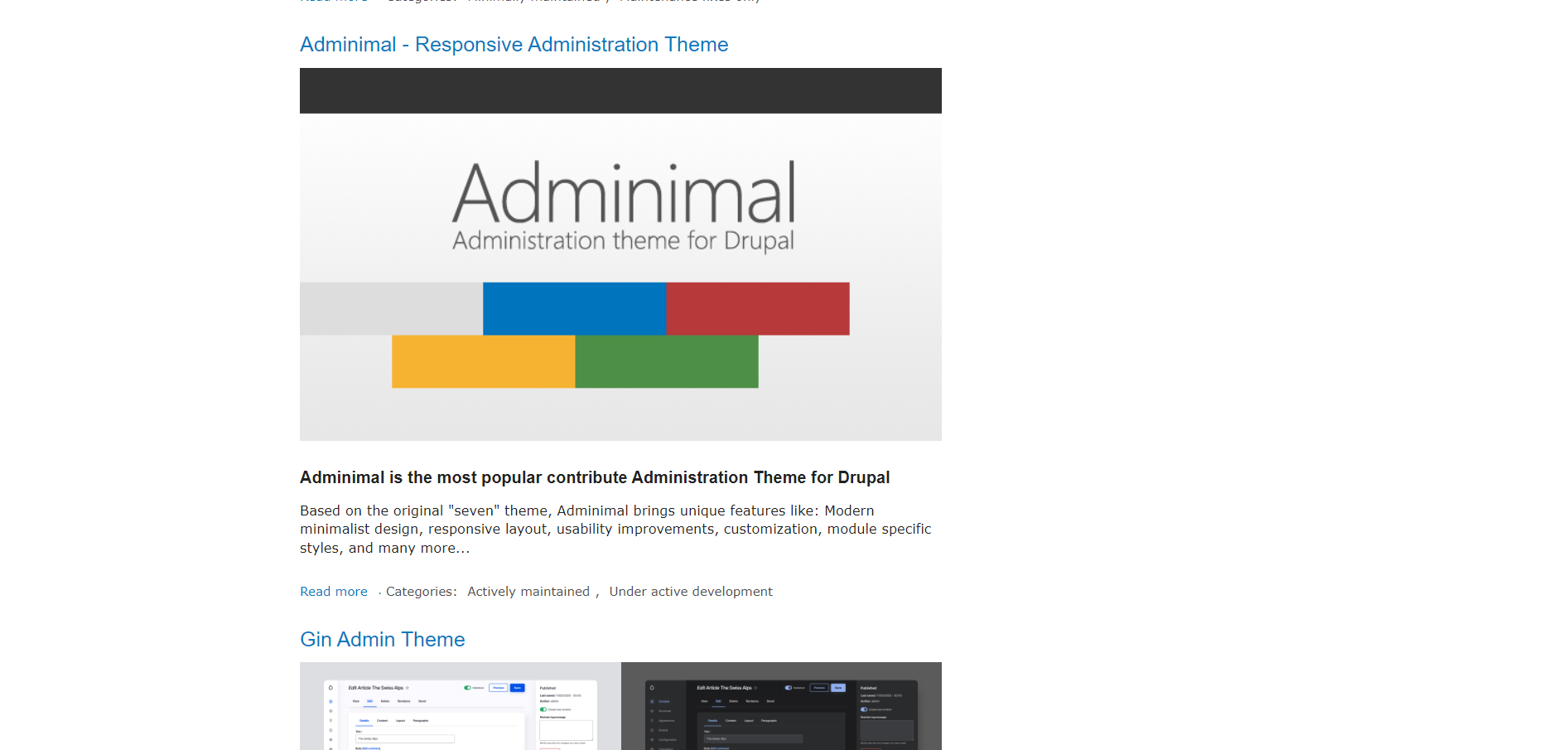
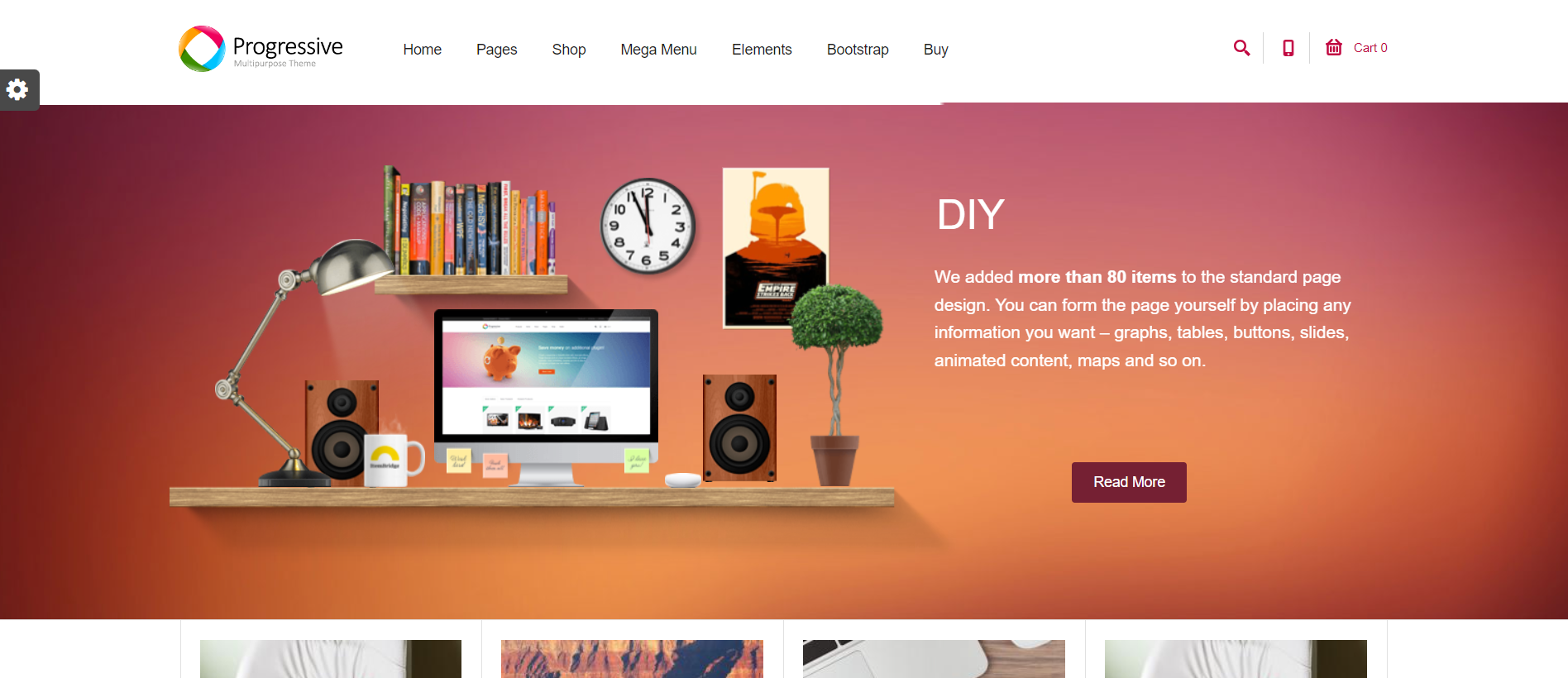
Compared to Drupal, Sellfy provides a collection of design templates through its theme store, located in the Store Customizer. Users have the option to preview these themes before applying them to their websites. As of the latest information, Sellfy offers five main theme options: Lumiére, Noir, Savant, Idée, and Mode.
Get a head start on website creation with AI
Create a custom website tailored to your business needs 10X faster with 10Web AI Website Builder!
Ease of use
Ease of useReflects the platform’s overall user-friendliness.Score
Components:
- Learning curve (40%): Quickness and ease of getting started.
- Interface design (30%): Simplicity and intuitiveness of layout.
- User guidance (20%): Quality of tutorials and support.
- Flexibility (10%): Adaptability to various user skills.
 5.4
5.4
 7.8
7.8
🏆 Winner: Sellfy
. With a score of 7.8, Sellfy offers an intuitive user interface and a straightforward website builder, making it accessible for creators and small business owners without advanced technical skills. Drupal, scoring 5.4, is a powerful platform for building complex websites and applications, but its steep learning curve can be challenging for beginners or those not familiar with web development principles.
Learning Resources
🏆 Winner: Drupal
. Despite its complexity, Drupal offers a wealth of learning resources, including extensive official documentation, a vibrant community forum, and a variety of online courses and tutorials. Sellfy, while user-friendly, lacks a large community of users and does not have a community forum.
For ecommerce
EcommerceMeasures the platform’s effectiveness in supporting online business activities.Score Components:
- Ecommerce themes and templates (20%): Variety and design of templates.
- Product management (25%): Ease of managing and organizing products.
- Payment options (25%): Variety and convenience of payment methods.
- Ecommerce features (20%): Features for managing an ecommerce store.
- Integration (10%): Compatibility with external e-commerce tools and services.
 7.5
7.5
 6.8
6.8
When it comes to ecommerce, both Drupal and Sellfy have their strengths and weaknesses. Drupal, with its Drupal Commerce module, offers a flexible ecommerce solution that can be integrated seamlessly into its content management system. It provides a wide array of features including product management, shopping cart, payment gateway integration, and customizable workflows. However, it has a steep learning curve and may require extensive customization.

|

|
|
|---|---|---|
|
Ecommerce themes and templates |
7.8 |
7.0 |
|
Product page customization |
8.3 |
6.5 |
|
Payment processing and commissions |
7.5 |
8.0 |
|
POS capabilities |
5.5 |
4.0 |
|
Payment gateways |
7.7 |
6.0 |
|
Product numbers |
7.0 |
7.5 |
|
Additional ecommerce features |
8.0 |
6.5 |
Drupal ecommerce features:
- Shopping Cart and Checkout Process
- Payment Gateway Integration
- Order Management and Invoicing
- Tax Calculation and VAT Support
- Shipping and Fulfillment
- Promotions and Discounts
- Reporting and Analytics
- Security and Compliance
Sellfy ecommerce features:
- Product Listings
- Payment Gateways integration
- Product categories
Ecommerce themes & templates
Drupal offers a wide array of eCommerce themes designed to cater to different types of online stores, from clean and simple designs to more sophisticated and feature-rich options. These themes are built with responsiveness in mind, ensuring that stores function seamlessly across various devices. On the other hand, all the templates of Sellfy are designed for online stores.
Product page customization
Drupal offers extensive customization possibilities for product pages through its modular architecture, allowing for detailed content types, flexible displays with Views, and theme customizations. The Drupal Commerce module enriches e-commerce functionalities, enabling tailored product management, checkout flows, and payment systems. Sellfy supports a diverse range of products including digital goods like music, videos, ebooks, and software, as well as physical products and print-on-demand merchandise such as t-shirts and mugs. The platform enables the sale of subscriptions, offering a means for recurring revenue.
Payment processing
Drupal supports a wide range of payment gateways through third-party modules, including popular ones like PayPal, Stripe, and Authorize.Net. These modules enable seamless integration for e-commerce functionalities on Drupal sites. Sellfy supports two primary payment gateways, Stripe and PayPal, allowing for various payment options including credit/debit cards and localized payment methods in Europe. The platform does not charge transaction fees beyond its subscription cost, though payment processors’ standard fees apply.
Website Editors
Website EditorsEvaluates the platforms’ website building and editing capabilities.Score Components:
- Customization tools (40%): Range and power of editing features.
- Editor usability (30%): User experience within the editor.
- Design flexibility (20%): Freedom in layout and design changes.
- Update and maintenance ease (10%): Simplicity of updating and maintaining the site.
 7.5
7.5
 6.8
6.8
🏆
Winner: Drupal
. Drupal, with a score of 7.5, offers a wide range of features tailored for content creation and management. It supports rich text editing, enabling users to format text, insert links, images, and media, as well as create tables and lists with ease. The editor is highly customizable, allowing administrators to configure toolbars and options according to the needs of their site. Furthermore, it integrates seamlessly with Drupal’s content management system, supporting features like automatic content saving, version control, and access control, making it a powerful tool for building and managing diverse web content.
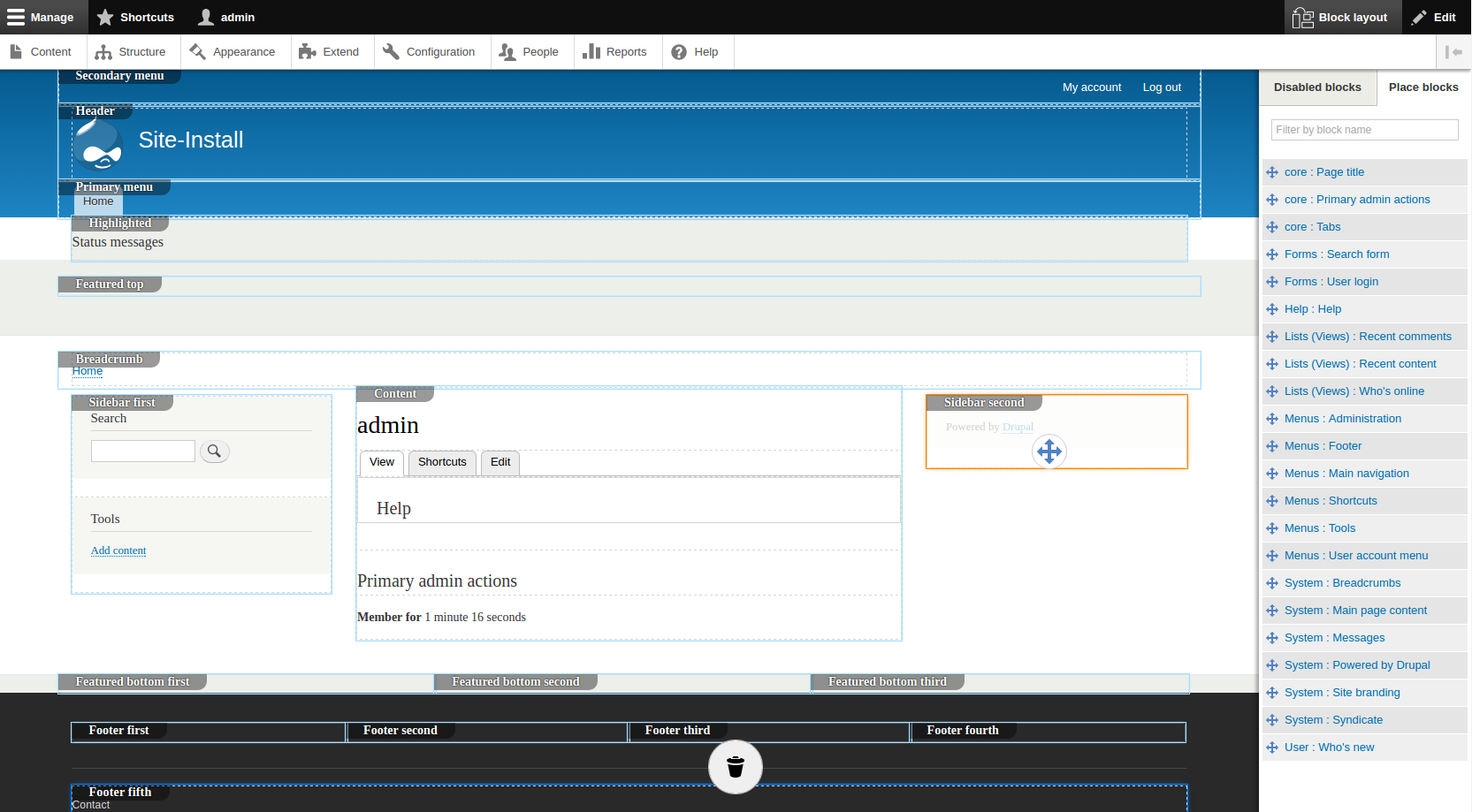
Sellfy’s editor, scoring 6.8, offers a straightforward and user-friendly platform for creating online stores, focusing on simplicity over advanced customization. It supports the sale of digital, physical, subscription-based, and print-on-demand products, alongside integrated marketing tools for promotion and sales optimization. Payment processing is secure and direct, utilizing popular gateways like Stripe and PayPal with no transaction fees. Despite some limitations in design customization and app integrations, Sellfy aims to provide a comprehensive e-commerce solution for entrepreneurs and creators.
Mobile editor/app
 0
0
 7.5
7.5
🏆
Winner: Sellfy
. Drupal does not have a dedicated mobile editor app, which puts it at a disadvantage in this comparison. On the other hand, Sellfy offers a mobile app that allows store owners to manage their online stores on the go. The app provides functionalities such as viewing store performance metrics, managing and tracking orders, and receiving customized notifications. Users can also access summary reports of their store’s performance on a daily, weekly, or monthly basis. However, it’s important to note that while the Sellfy app allows for efficient store management, it does not allow users to change the layout or design of the website itself.
Product testing options
Product Testing OptionsAssesses the options for trying out platform features before commitment.Score Components:
- Trial quality (40%): Extent and usefulness of the trial or free version.
- Feature accessibility (30%): How many features are available to test.
- Trial duration (20%): Length of the trial period.
- Ease of transition (10%): Smoothness of moving from trial to paid plans.
 7.1
7.1
 7.3
7.3
Overall Result
:
Sellfy Wins
. Sellfy scores slightly higher than Drupal with a score of 7.3 compared to Drupal’s 7.1. While Drupal is an open-source CMS and is free to use, it does not offer a trial version or the possibility to test premium features. On the other hand, Sellfy offers a 14-day free trial during which users can test premium features. Additionally, Sellfy provides a 30-day money-back guarantee, offering more assurance to users.

|

|
|
|---|---|---|
|
Free Plan |
Yes (open-source software) |
No |
|
Trial Duration |
No |
14 days |
|
Testing Premium Features |
No |
During the free trial |
|
Money Back Guarantee |
No payments required |
30-day money back guarantee |
Price
PriceLooks at the cost-effectiveness and value for money of each platform.Score Components:
- Plan value (40%): What each pricing tier offers.
- Transparency and clarity (30%): Clearness of pricing structures.
- Flexibility of plans (20%): Range of options to suit different budgets.
- Hidden costs (10%): Additional expenses not included in the plan.
 5.7
5.7
 7.9
7.9
Sellfy offers a more straightforward pricing structure with clear plans and features, while Drupal is free but requires separate purchases for domain, hosting, and website builder subscriptions.

|

|
|
|---|---|---|
|
$20-$30 |
No offering at this amount. |
Starter ($29/month): Ideal for growing businesses with sales up to $10k/year. Offers unlimited products, digital and subscription products, domain connection, and 2,000 email credits. Annual savings available. Value for price: 7.5 |
|
$70-$80 |
No offering at this amount. |
Business ($79/month): Targets businesses with up to $50k in yearly sales, offering everything in the Starter plan plus 10,000 email credits, product and store design migration, product upselling, cart abandonment tools, and Sellfy branding removal. Value for price: 8.0 |
|
$100+ |
No offering at this amount. |
Premium ($159/month): For businesses with up to $200k/year in sales. Includes everything in the Business plan plus 50,000 email credits, product migration, and priority support. Annual savings are also offered. Value for Price: 8.5 |
location. As a result in rare cases the prices displayed here can differ from the ones you see on their
websites.
Hosting quality
Hosting
qualityExamines the reliability and performance of the hosting solutions.Score Components:
- Uptime (40%): Consistency and reliability of website availability.
- Speed (30%): Loading times and performance.
- Bandwidth and storage (20%): Sufficiency of resources provided.
- Data centers (10%): Quality and distribution of hosting infrastructure.
 0
0
 7.3
7.3
Winner: Sellfy
. Sellfy offers hosting services with a high uptime of 99.99%, although it does not disclose the type of hosting or the locations of its data centers. On the other hand, Drupal does not offer hosting services directly, and its hosting quality depends on the chosen hosting provider. This gives Sellfy a higher hosting quality score.

|

|
|
|---|---|---|
|
Do they offer hosting? |
No | Yes |
|
Type of hosting: |
Depends on hosting provider | Not disclosed |
|
Uptime: |
Depends on hosting provider | 99.99% |
|
Uptime Guarantee: |
Depends on hosting provider | No |
|
Data Centers: |
Depends on hosting provider | Not disclosed |
Website Speed Optimization
Website Speed OptimizationEvaluates optimization of website loading timesScore Components:
- PageSpeed Score (30%): Google’s score indicating performance optimization.
- Loading Time (30%): The average time until a website is fully interactive.
- Mobile Optimization (15%): Optimization effectiveness for mobile devices.
- Resource Optimization (15%): Optimizing images, scripts, and other heavy resources.
- CDN Usage (10%): Use of CDN to enhance speed across geolocations.
 6.4
6.4
 5.4
5.4
🏆 Winner: Drupal
Both Drupal and Sellfy have strategies in place for website speed optimization, but Drupal’s open-source nature and extensive guides and tutorials give it an edge over Sellfy.

|

|
|
|---|---|---|
|
Focus |
Extensive guides and tutorials |
Code Minification, Caching, Image Optimization |
|
Performance Tools |
User-dependent |
User-dependent |
|
Key Strategies |
Comprehensive optimization guides |
Code Minification, Caching, Image Optimization |
|
Load Times |
Varies depending on optimization and website complexity |
Varies depending on optimization and website complexity |
|
Page Speed Scores Range |
Varies depending on optimization and website complexity |
Varies depending on optimization and website complexity |
|
Core Web Vitals Improvement |
User-dependent |
No information provided |
Drupal, an open-source CMS, offers numerous guides and tutorials on speed optimization, allowing users to optimize almost all aspects of their website. The load times and PageSpeed scores vary depending on the optimization and website complexity. The Core Web Vital improvements also depend on the users.
On the other hand, Sellfy, an all-in-one eCommerce platform, focuses on code minification, caching, and image optimization for speed optimization. However, like Drupal, Sellfy’s load times and PageSpeed scores also vary depending on the optimization and website complexity. Sellfy does not provide any information on their Core Web Vital improvements.
Get a head start on website creation with AI
Create a custom website tailored to your business needs 10X faster with 10Web AI Website Builder!
Plugins and integrations
Plugins and integrationsMeasures the range and effectiveness of additional plugins and integrations.Score Components:
- Variety of options (40%): Range of available add-ons.
- Integration smoothness (30%): Ease of integrating plugins into the site.
- Quality of plugins (20%): Functionality and reliability of the options.
- Custom integration capabilities (10%): Support for custom or third-party integrations.
 8.6
8.6
 6.7
6.7
🏆 Winner: Drupal.
With a score of 8.6, Drupal leads the way with its extensive range of over 51,000 free and open-source plugins, known as modules. These modules extend Drupal’s capabilities beyond its core features, enabling functionalities like advanced SEO tools, e-commerce solutions, and custom content types and fields. Sellfy, scoring 6.7, offers various integrations to enhance ecommerce functionality and automate workflows, but the costs associated with these integrations vary. While Sellfy’s integrations provide advanced analytics, extended payment gateways, sophisticated marketing tools, and deeper customer engagement options, Drupal’s breadth and depth of free and open-source modules give it the upper hand.
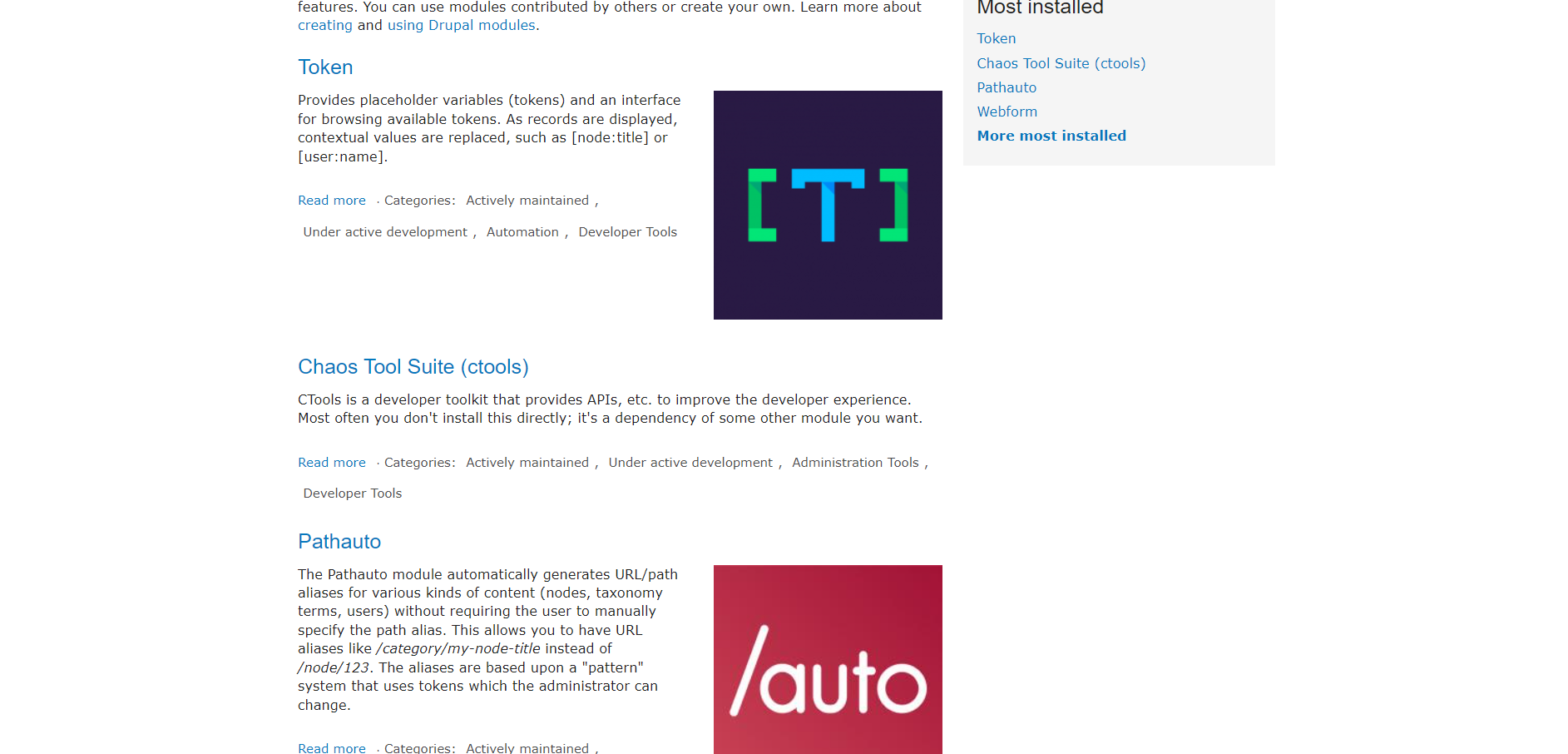
Marketing Features
Design FunctionalitiesRepresents how well each platform allows for creative design and customization of websites.Score Components:
- Template Variety (30%): Range and quality of design templates.
- Customization (30%): Flexibility and options for design alterations.
- User Interface (20%): Ease and intuitiveness of the design process.
- Responsiveness (10%): Adaptability to different devices and screen sizes.
- Innovation (10%): Unique design features and tools.
 8.0
8.0
 7.1
7.1
🏆
Overall Winner: Drupal
. Drupal stands out for its flexibility and extensibility, enabling developers to create complex websites with custom functionalities. Sellfy, on the other hand, is tailored for creators looking to sell a wide array of products including digital, physical, subscription-based, and print-on-demand items.

|

|
|
|---|---|---|
|
SEO Tools |
Yes, with SEO modules such as Yoast SEO |
Yes |
|
Email Marketing |
Yes, but with third-party extensions, such as MailChimp |
Yes |
|
Blogging |
Yes |
No |
|
Social Media Integration |
Yes |
Yes |
|
Analytics and Reporting |
Yes, basic built-in features, and Google Analytics integrations through modules |
Yes |
|
Ads and Promotions |
Yes, but with third-party extensions |
Yes |
Customer Support
Customer supportEvaluates the quality and availability of support options.Score Components:
- Response time (40%): Speed of support responses.
- Support quality (30%): Effectiveness and helpfulness of the support.
- Availability (20%): Range of support channels (phone, chat, email).
- Resource richness (10%): Quality of self-help and educational materials.
 6.7
6.7
 5.8
5.8
🏆 Winner: Drupal
. Comparing Drupal vs Sellfy, Drupal takes the lead in this category with its extensive community support system and professional 24/7 support services available through various providers. Drupal users benefit from a robust community on Drupal.org, which offers forums and documentation, as well as professional support options that cater to a wide range of needs, from basic inquiries to advanced maintenance and hosting.
Sellfy, on the other hand, provides 24/7 customer support but lacks phone and live chat options, which can limit the immediacy of assistance. While Sellfy’s support is available around the clock, the reliance on email and a knowledge base may not be as comprehensive or immediate as the support options available to Drupal users.
Security
SecurityLooks at the platforms’ security measures and data protection.Score Components:
- Data protection (40%): Safeguards for user and customer data.
- SSL and encryption (30%): Implementation of secure connections.
- Compliance (20%): Adherence to industry security standards.
- Regular updates (10%): Frequency of security updates and patches.
 8.3
8.3
 7.2
7.2
🏆
Winner: Drupal
. Drupal’s security is more robust and flexible, offering a wide range of configuration options and modules for enhanced protection. It includes built-in mechanisms for preventing common web vulnerabilities and supports advanced security features like two-factor authentication. Drupal’s proactive security approach is bolstered by a dedicated security team that continuously works on identifying and fixing vulnerabilities.
On the other hand, Sellfy employs several security measures to safeguard sellers and their digital products from unauthorized access, fraud, and piracy. These measures include the use of secure payment processors, unique download links for each purchase, and additional tools like PDF stamping to deter content sharing. While these strategies significantly mitigate risks, Sellfy also recognizes the inherent challenges of completely eliminating piracy in the digital space.
AI Capabilities
AI capabilitiesMeasures the effectiveness of AI-driven features and tools.Score Components:
- Automation efficiency (40%): Impact of AI on streamlining processes.
- Personalization (30%): AI-driven customization for users or customers.
- AI-Assisted design (20%): Role of AI in website design and functionality.
- Data analysis (10%): Use of AI in interpreting user data and analytics.
 7.5
7.5
 0
0

|

|
|
|---|---|---|
|
AI Builder |
|
|
|
AI Ecommerce |
AI-enhanced e-commerce with chatbots, content creation, marketing automation, and cognitive services |
|
|
AI Content Generation |
AI-enhanced content creation with modules like AI Connect |
|
|
Additional AI Features |
AI-based search enhancements, content personalization, automated content moderation, language translation, content localization, and accessibility improvements |
|
🏆 Winner: Drupal
. Drupal, with a score of 7.5, integrates AI across various functionalities, enhancing e-commerce through chatbots, content creation, marketing automation, and cognitive services. It also enhances content creation through AI with modules like AI Connect, enabling integration with AI services for diverse functionalities like content generation, SEO optimization, and multilingual support. On the other hand, Sellfy does not have any AI features.
User Management
User ManagementAssesses the platforms’ capabilities in managing user roles, permissions, and accessibility.Score Components:
- Role Customization (40%): Flexibility in creating and defining user roles and
permissions. - Ease of Management (30%): User interface and tools for managing users.
- Access Control (20%): Effectiveness of access control measures for different user
levels. - Scalability (10%): Ability to manage a growing number of users efficiently.
 9.1
9.1
 2.0
2.0
🏆 Winner: Drupal
. Drupal’s flexible permission and role system allows for an unlimited number of users to manage and edit a website, only constrained by server capacity and practical management considerations. Administrators can create various roles, such as “Editor” or “Administrator”, each with customized permissions. There’s no inherent limit in Drupal on the number of users with administrative or editing capabilities, enabling extensive collaboration and content management possibilities. On the other hand, Sellfy does not support adding multiple users or staff to a single account.
Drupal User Roles and Access Levels:
| Role | Description | Access Highlights |
|---|---|---|
| Editor | Users responsible for content creation, editing, and publishing. | Can create, edit, delete, and publish content; can also manage comments. |
| Moderator | Users focused on site moderation, including comment and user management. | Can approve or delete comments, block users, and manage reported content. |
| Administrator | Users with full access to all administrative features of the site. | Can change site configuration, manage all content, users, permissions, and install modules/themes. |
Sellfy does not provide user roles and access levels.
Additional Features

|

|
|
|---|---|---|
|
SSL Certificate |
|
|
|
Custom Domain |
|
|
|
Free Custom Domain Included |
|
|
|
International Domains |
|
|
|
Mobile Responsive |
|
|
|
Page Speed |
|
|
|
Website Builder Mobile App |
|
|
|
Convert a Website To An App |
|
|
|
Website Analytics |
|
|
|
Multilingual Sites |
|
|
|
Multiple Users |
|
|
User Feedback
Users appreciate Drupal for its ease of use, security, and flexibility as an open-source CMS, highlighting its ability to scale and support a variety of websites and applications with modern technology tools. The community and documentation are frequently mentioned positives, providing ample support and resources. However, criticisms include a relative lack of plugins and themes compared to competitors like WordPress, the learning curve for customization without coding, and some challenges with installation and updates. The platform is praised for its robust content management capabilities, enabling users to manage content and user access efficiently. Overall, feedback underscores Drupal’s strength in creating secure, customizable, and scalable web solutions, despite some desires for more intuitive UI and easier setup.
The user feedback on Sellfy highlights its strengths in providing an efficient, compact online store setup that caters to specific needs with affordable pricing, including a 14-day trial period to familiarize users with the product. Many appreciate its user-friendly interface, internal marketing tools, and customization options, which enable sellers to tailor their storefronts to their brand, along with integrations for payment processing like PayPal and Stripe. However, criticisms include issues with mobile site speed, a desire for clearer insights, limitations on customization, and some customer service inefficiencies.
The making of this blog
We followed a clear, step-by-step process to write and research this article.
FAQ
Which platform is better for ecommerce, Drupal or Sellfy?
Can I use Drupal or Sellfy for a content-rich informational website?
How do Drupal and Sellfy compare in terms of design and customization?
Which platform is easier to use for beginners?
What are the hosting and website speed optimization differences between Drupal and Sellfy?
How do the platforms compare in terms of plugins and integrations?
Which platform offers better customer support?
What are the security features of Drupal and Sellfy?










